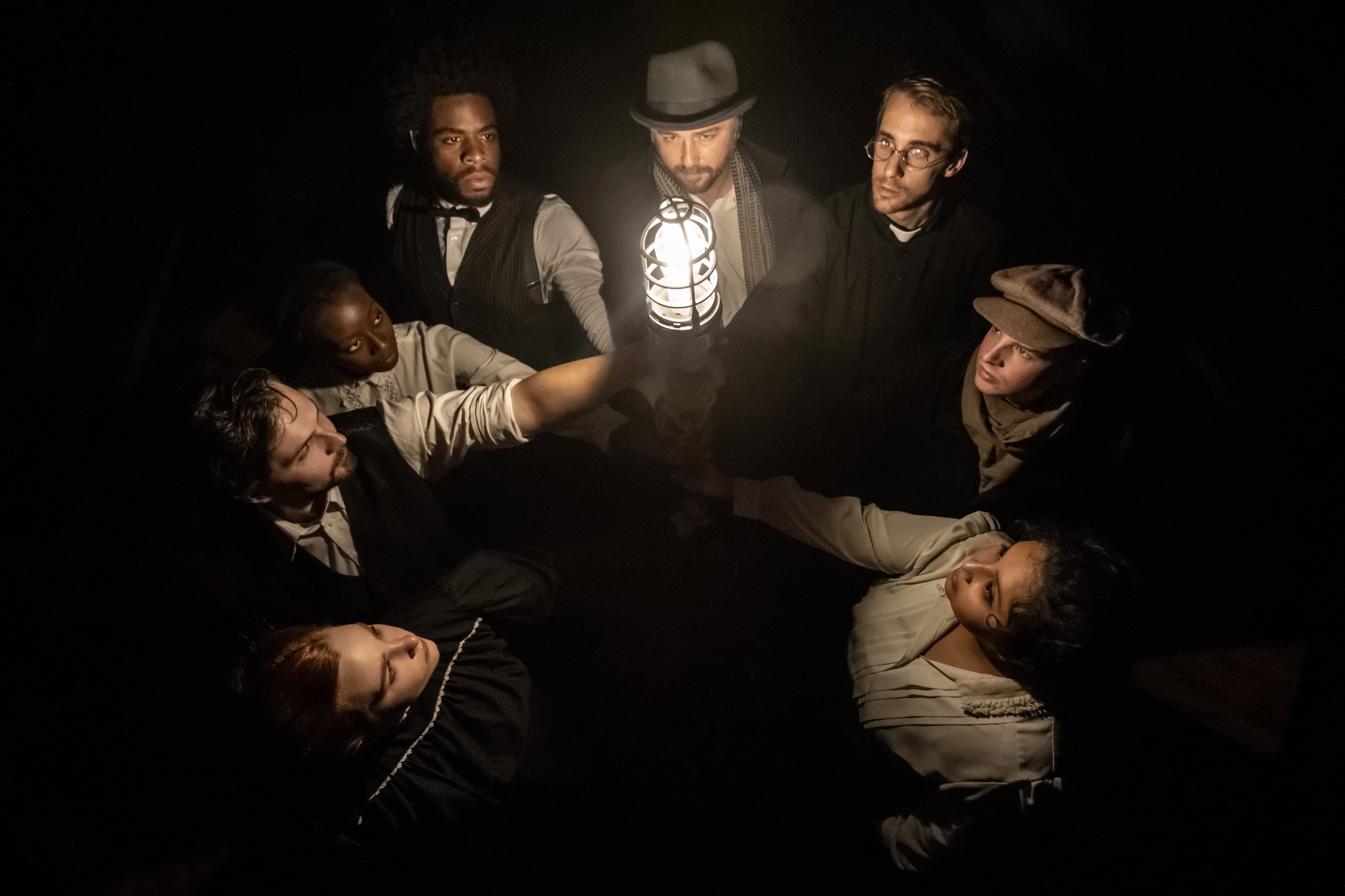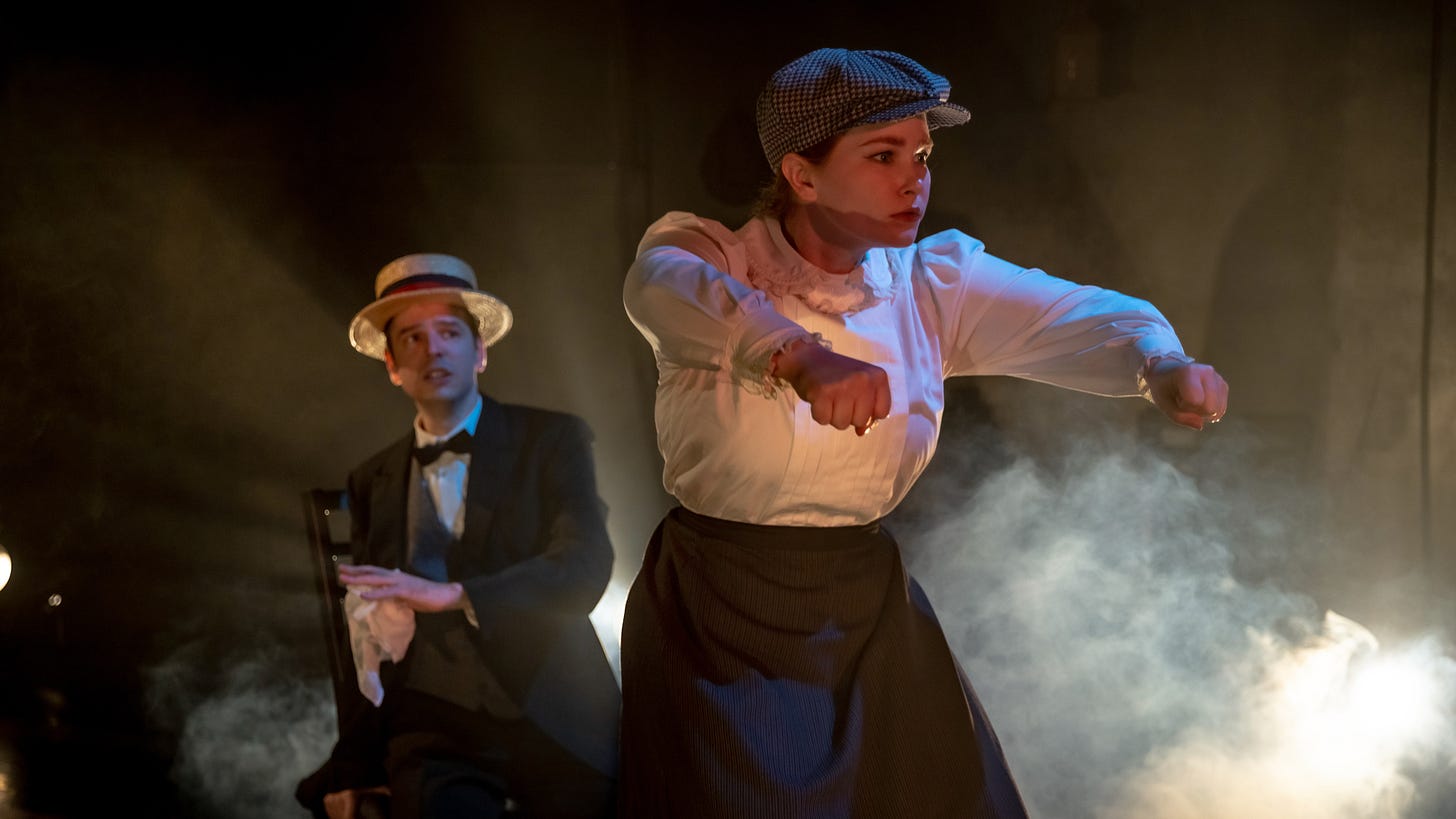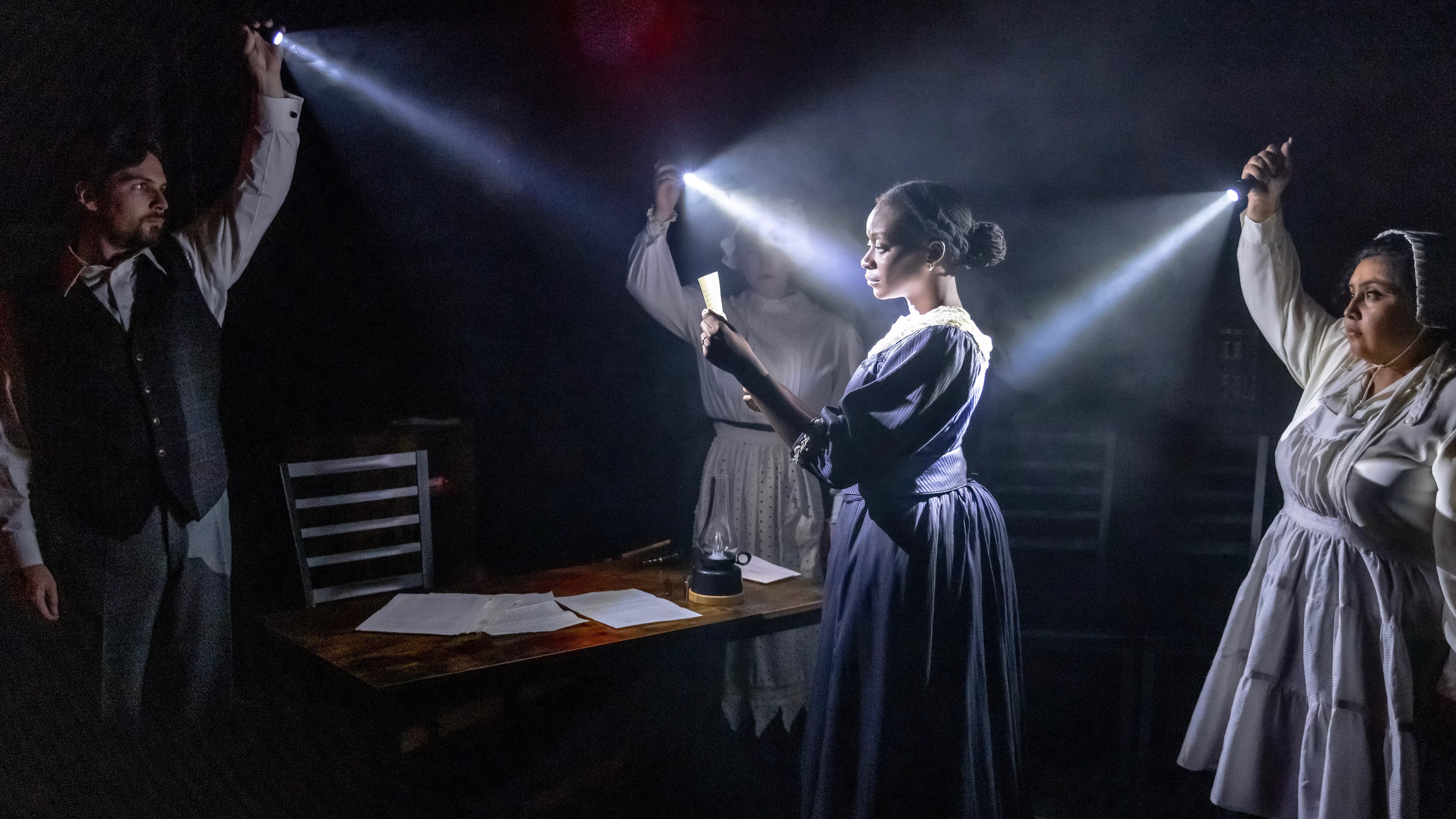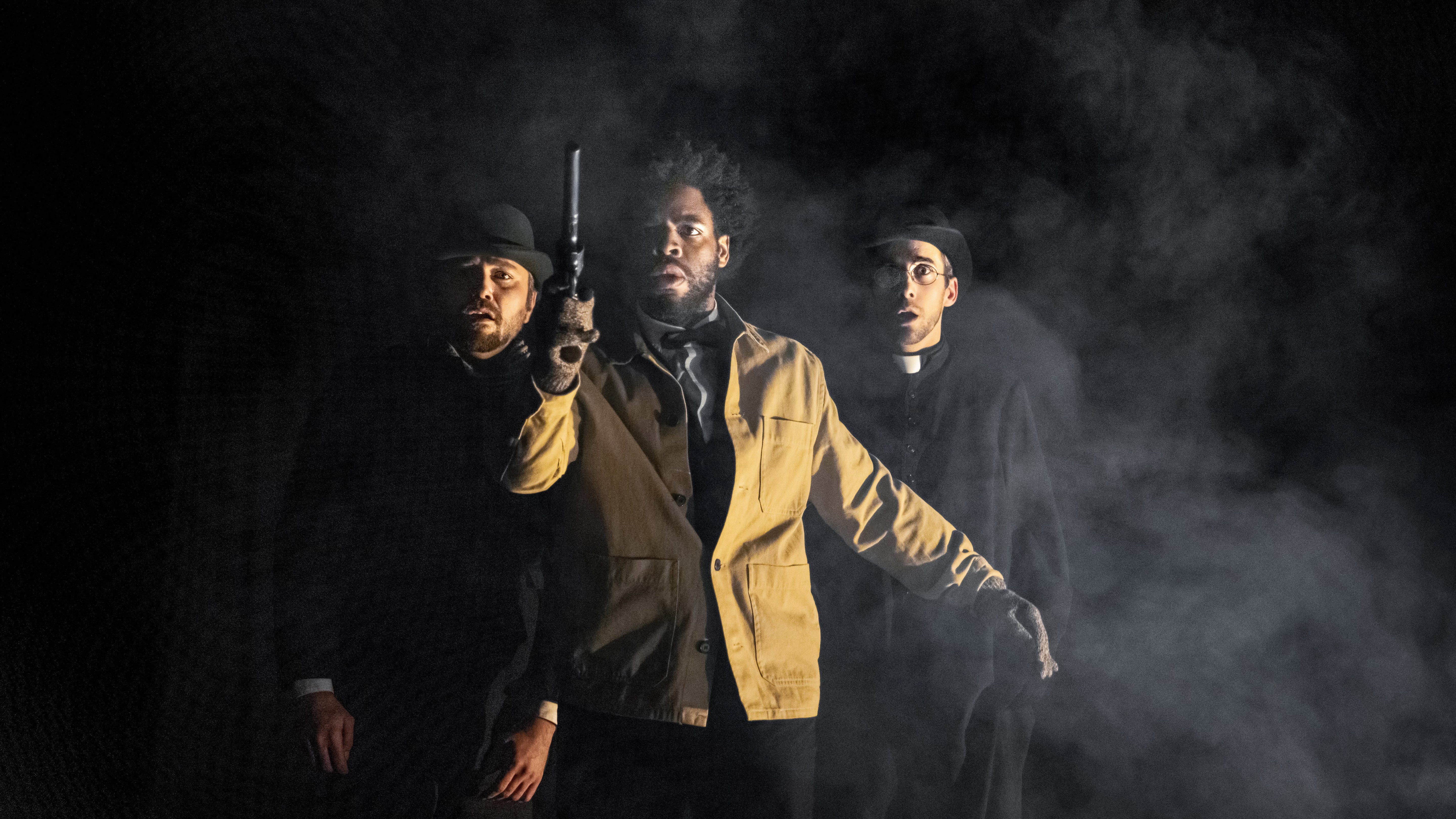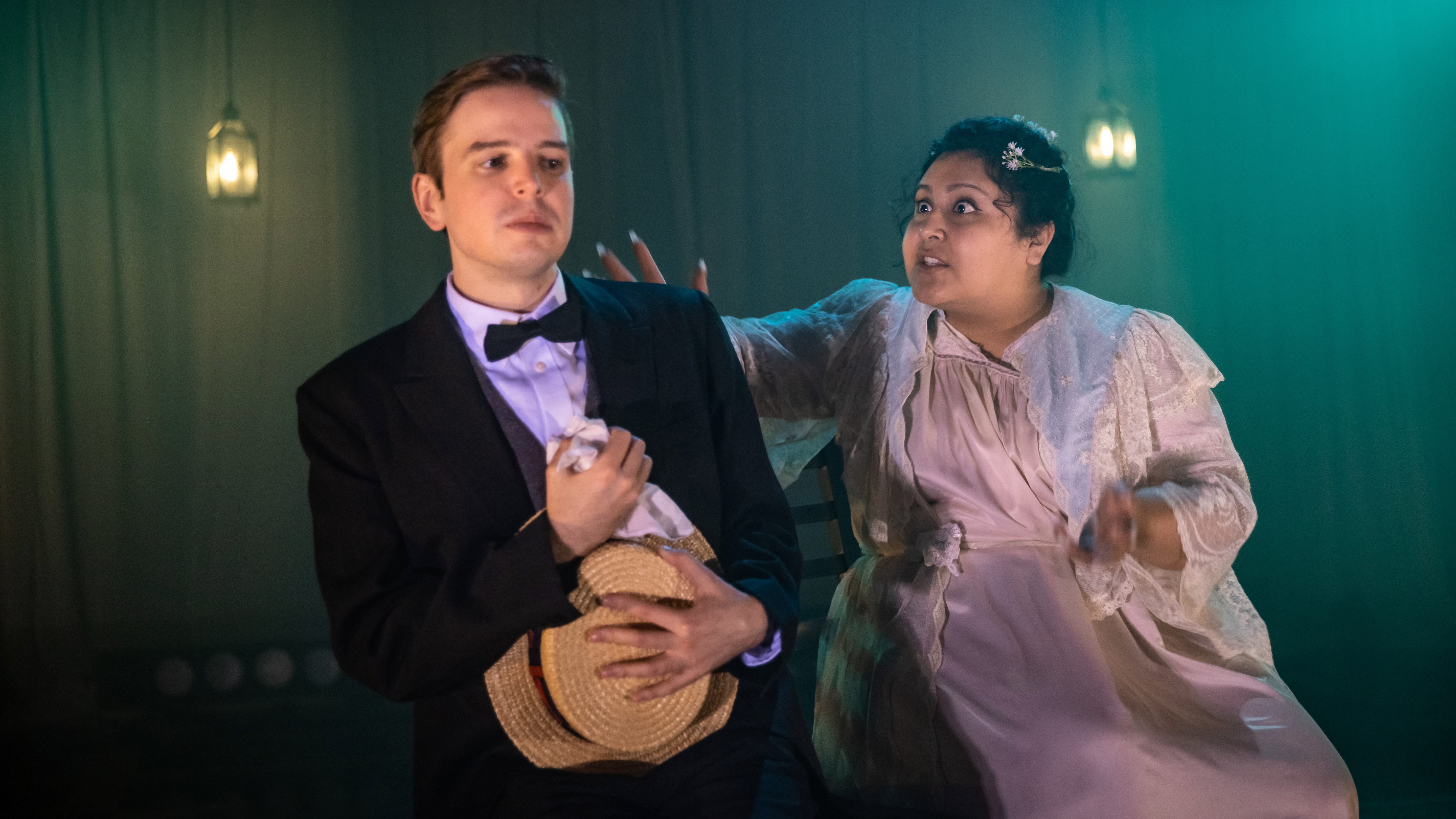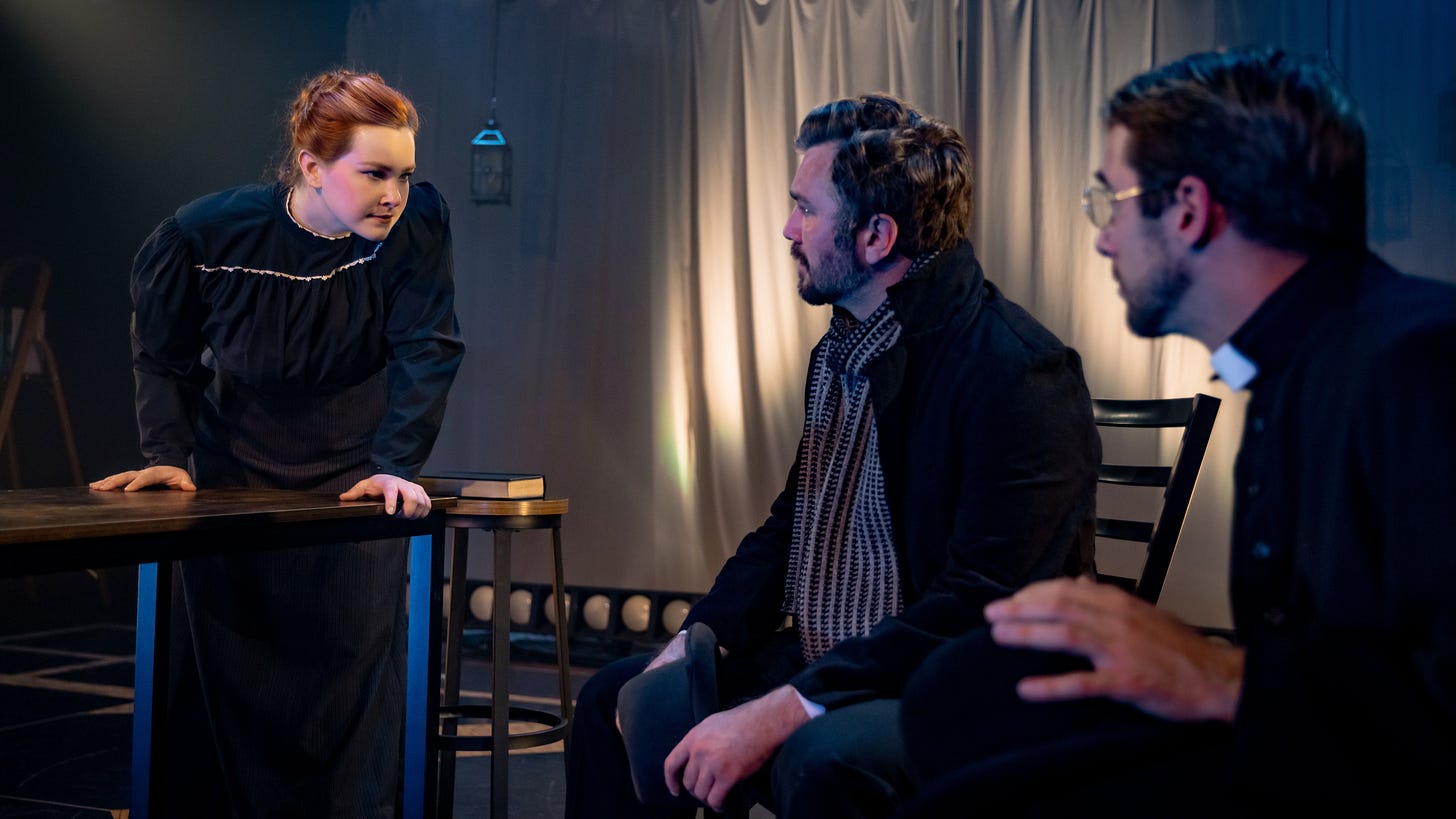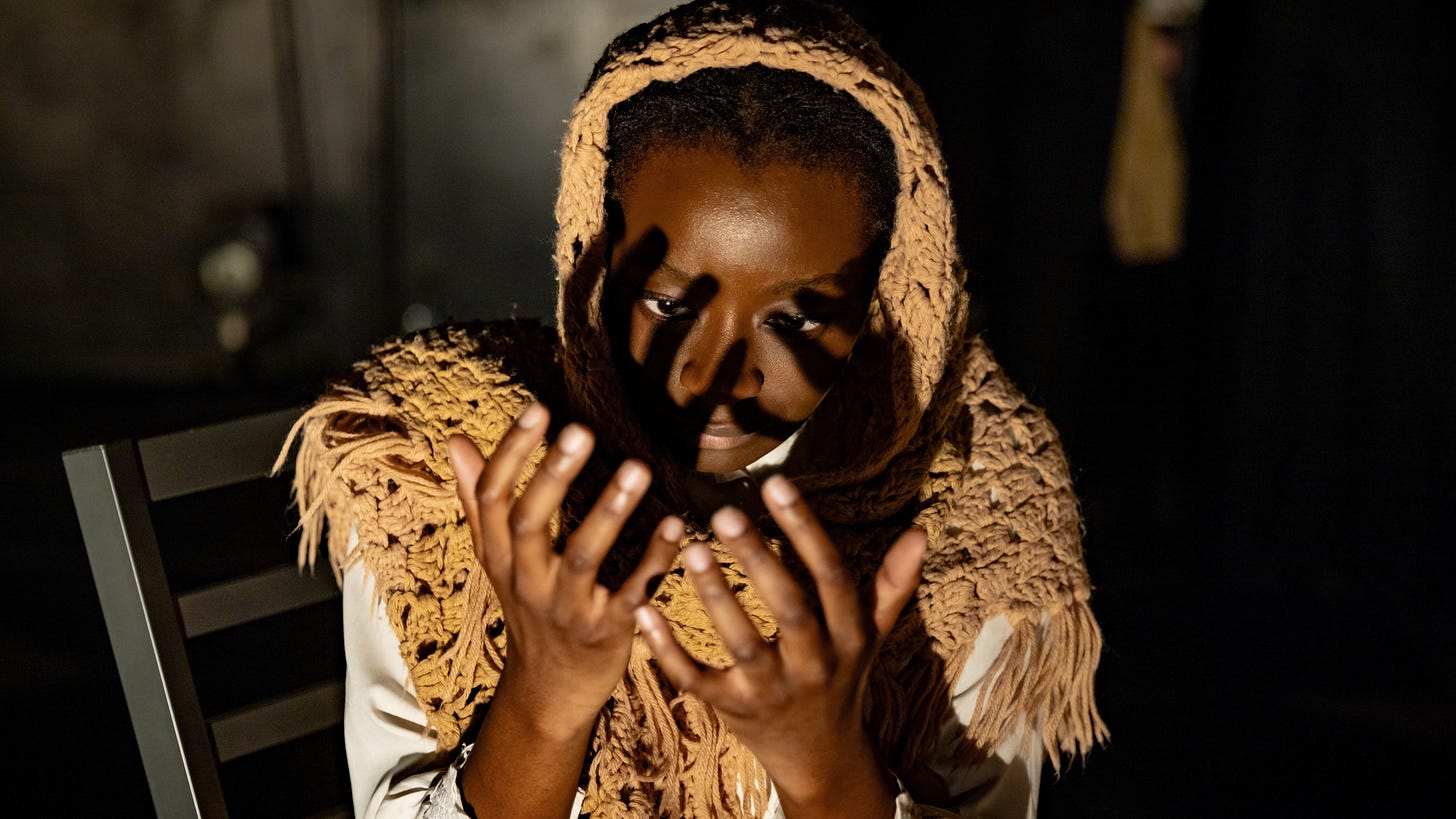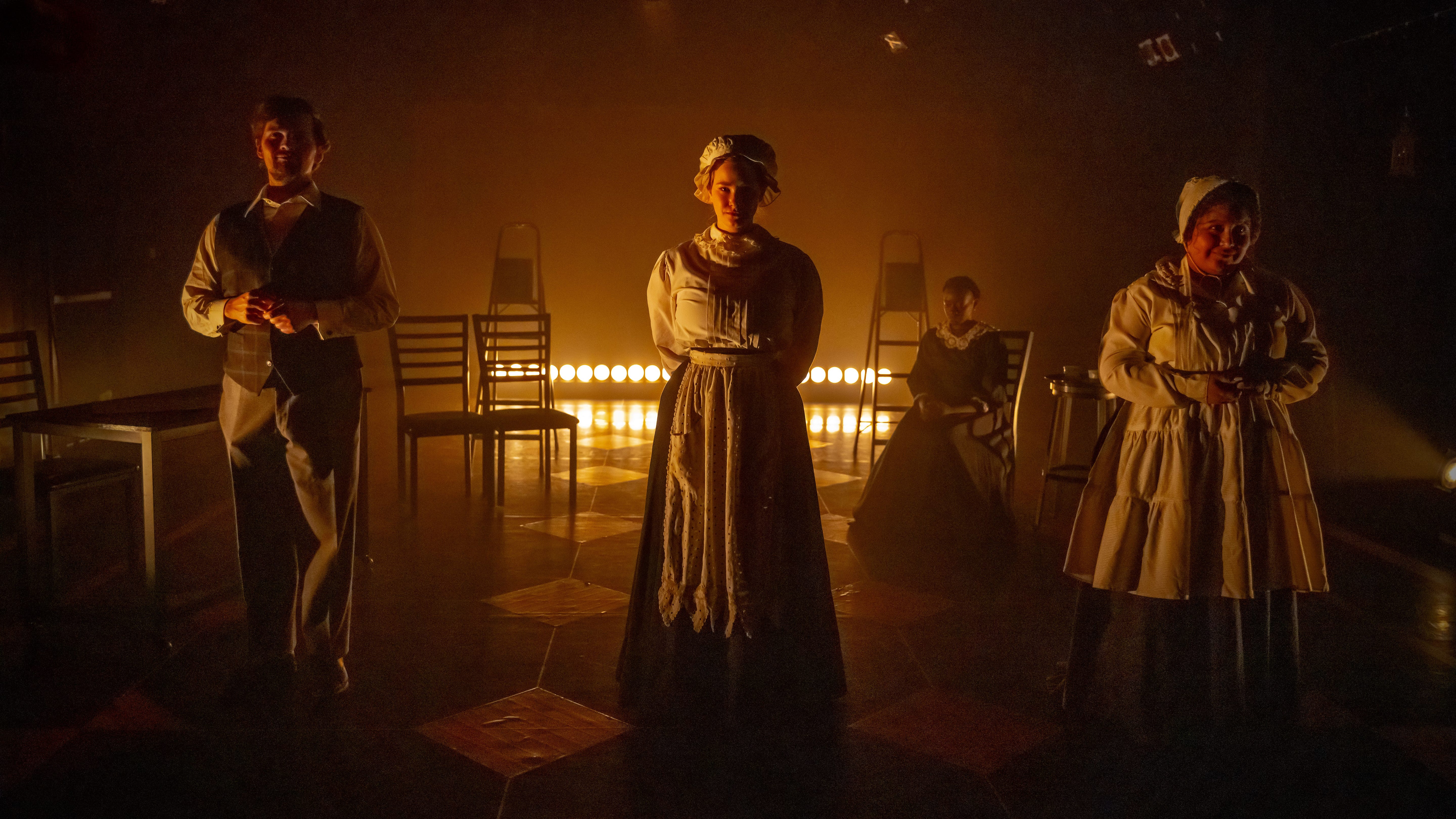I Started With Ghosts; They've Haunted Every Project Since
How adapting Edith Wharton’s gothic tales shaped the way I make theater—with production photos and a short video.
It began with a handful of ghost stories and an uneasy feeling I was disappearing from the theater world. Out of that restlessness came Unearthly Visitants, my first self-produced project—and somehow, every piece I’ve made since has been haunted by it.
Independent theater provides opportunities for artists like myself to bring unique and groundbreaking work to life, offering a stage for voices that might otherwise remain unheard. By championing independent theater, you can nurture a vibrant ecosystem where creativity thrives and varied perspectives enrich the performing arts.
Conjuring a Project
The first play I both self-produced and directed was an adaptation of four ghost stories by Edith Wharton titled Unearthly Visitants. I created the show with an ensemble of actors and designers during the summer of 2021, and it played four performances that October at Triskelion Arts in Greenpoint, Brooklyn.
I came up with the idea for the project in the year leading up to the pandemic, at a time when I was finding it impossible to get hired as a theater director. Once, I attended a panel of artistic directors hoping to network afterward—but during the presentation, one panelist said, “I don’t hire any directors whose work I haven’t seen.” After hearing that I realized: without work to show, there was no point staying to network. I went home. There I decided I’d make my own work, so there’d be something to see. Maybe I’d even invite that artistic director.
Employment aside, I needed an artistic project to wake up my creative spirit. Even if no one who could hire me came to the show, the process of making art with collaborators I adored would bring joy and fulfillment into my life.
Right after submitting my first grant proposal for the project, the pandemic shut everything down. During lockdown, I learned my proposal wasn’t funded. I kept applying for other grants, but my spirit felt crushed. Then, during a meeting with an arts program manager about a proposal I was revising, she said something that changed my perspective:
“For some reason, Edith Wharton is calling out to you. You can hear her. She wants you, specifically, to stage her stories. Write about why you can hear her and what she’s telling you.”
That advice didn’t just inspire me—it gave me a sense of responsibility. If Wharton had “chosen” me, I had to bring her ghosts to life.
By spring 2021, I received two small grants to partially fund the project.
I’d directed shows before, but Unearthly Visitants was my first outing as an independent producer. It taught me how to assemble a team of artists, secure a performance venue, acquire rights for adaptations, and locate affordable rehearsal space.
I also learned something about timing. That same year, a new edition of Wharton’s ghost stories was released, and—by sheer coincidence—a writer from The New Yorker was preparing a piece about it. Because I’d listed my upcoming adaptation on my website, the writer reached out. I assumed the email was spam at first, but it was real! I was thrilled to be included in the article. (You can read it here.)
The producing lessons from that first outing still guide me, but beyond the logistics, the project changed how I make theater.
Possessing the Text
If you’ve read my essays in Modern Drama, you know I didn’t approach Unearthly Visitants as a traditional playwright. I used a theater-making process called devising, collaboratively building the play with an ensemble of designers and actors, using Wharton’s stories as our source material.
Before rehearsals began, I had to decide what kind of adaptation this would be. Would I reset the tales in modern times? Interweave them so characters crossed into each other’s stories? Or distill the essence of each story into something entirely new?
When I pitched the idea to colleagues, I noticed that few knew Wharton had written ghost stories. Most associated her only with The Age of Innocence, The House of Mirth, or Ethan Frome. That realization shaped my approach: this production would introduce audiences to Wharton’s gothic tales, so it felt essential to preserve their original tone and language.
That principle—to reveal what still resonates within the original text rather than overwrite it—has guided my later adaptations of E.M. Forster’s The Machine Stops and Yevgeny Zamyatin’s We. I realized I could create a niche for literary adaptations that illuminate the enduring pulse of the source material.
Choosing the Spirits
I own two collections of Wharton’s ghost stories, each contains a different table of contents. One omits “A Bottle of Perrier”; the other excludes “The Looking Glass.” Neither includes “A Journey,” “The Fulness of Life,” or “The Duchess at Prayer”. Depending on who you ask, Wharton wrote at least fifteen spectral tales—if not more.
Creating an anthology play requires a balance between variety and cohesion. I was essentially assembling four one-acts that needed to resonate like movements in a symphony—distinct yet unified by a shared emotional key. The fact that they were all about ghosts gave me a natural unifier, but I had to be shrewd about which stories I chose so the play didn’t feel repetitive. For example, “The Lady’s Maid’s Bell,” “The Triumph of Night,” and “The Eyes” each contain homoerotic undercurrents, so I chose only one. Likewise, “Afterward” and “Pomegranate Seed” both center on secrets between spouses; again, it had to be one or the other. I needed four ghost stories with variety.
In the end, I chose “Afterward,” “The Eyes,” “Miss Mary Pask,” and “Bewitched.” Together they created an evening that not only explored our relationships to transgressions in the past, but also the impact of secrets and lies, the cost of failing to accept oneself, loneliness and the need to find connection, and the consequences of repression and forbidden desire.
Since Wharton wrote a preface to her ghost stories reflecting on her mastery of the uncanny, I framed the show with excerpts from that essay—as if Wharton herself were returning from the beyond.
Unearthing the Drama
With a creative team and gothic tales assembled, we began rehearsals in the summer of 2021. As you recall, the pandemic forced us all into isolation for over a year, and I was desperately looking forward to being in a room together with my collaborators. But nature had other plans—a blustery storm hit the day of our first rehearsal—we had to meet on Zoom.
I’d prepared a rough draft of the script that was mainly Wharton’s stories as she’d written them with lines of dialogue divided amongst the cast. I didn’t cut very much because I wanted everyone to get a full grasp of what these tales were about. Once everyone “arrived” on Zoom we began to read.
The reading dragged on for four hours.
At the end, everyone offered thoughtful feedback, but one actor made an observation that sent a chill down my spine:
“Kevin it’s very interesting, but it’s way too long. Also, where is the drama?”
In retrospect I should have been ruthless in cutting the material for that first reading. I also could have revised my entire plan, considering we were meeting on Zoom, and given everyone a synopsis of each story instead of trying to read them as a play.
I was scared because I thought everyone might quit the project; there was truth in the observation that the four-hour reading lacked drama.
Our next rehearsal was schedule to be in-person so I knew I had to quickly come up with a plan to engage everyone’s interest or I could have a mutiny on my hands.
I started rehearsal explaining the drama of these stories was in the subtext. I told the cast to approach Wharton’s dialogue as if it were written by Chekhov—the real action is in what’s not said. Still, we needed to make the stories live physically.
For this rehearsal, we focused on one story: “Afterward.” I asked the actors to name five key events in the story, then title each one. I wrote those titles on large sheets of paper and hung them around the room. The actors created frozen images—tableaux—for each event, and soon they were grabbing props, chairs, and ladders to build their still pictures.
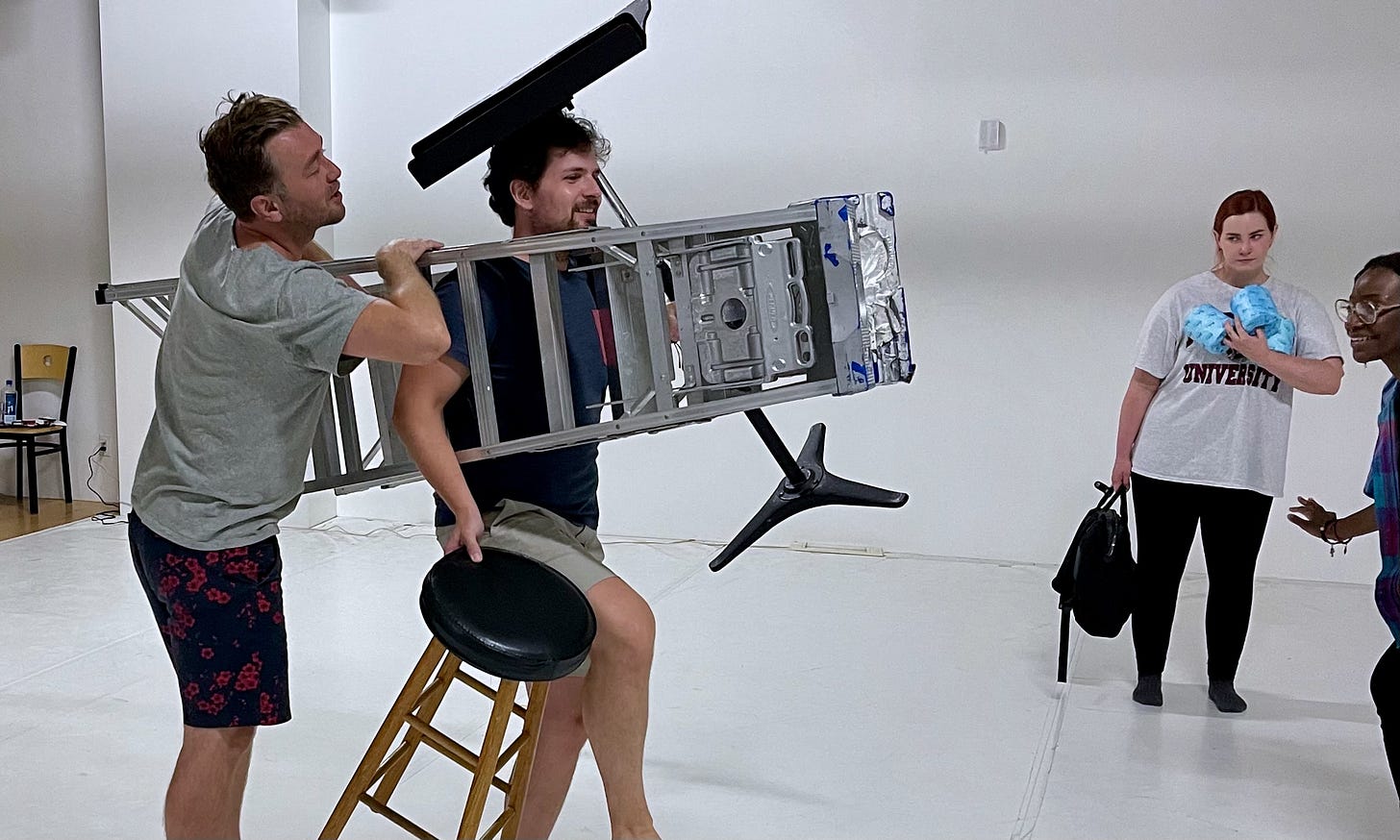
Once we had those five physical moments, we wove in lines from the original text, cutting what wasn’t essential. The script began to distill itself, the ghostly heart of Wharton’s stories emerging through movement and rhythm. We repeated the process for the other three tales on subsequent rehearsal days.
Over the course of the summer and into the fall, the show came together. I sat in the back of the theater and watched four different audiences take in the first show I both self-produced and directed. It was marvelous.
Because I had a very small budget for the show, I could only rent the performance venue for one week—four performances was all I could afford. But I was very satisfied to hear that one night after the show, the actor who initially worried the play lacked drama lamented to our lighting designer that the run was too short. He explained he was just beginning to understand how the play worked, and it was a shame the show was closing so soon.
It’s been my dream to mount a production of Unearthly Visitants. There was something about it that didn’t feel quite complete. Ideally a theater somewhere can provide an opportunity for a final development process. I’m hoping there’s a longer run of this production in my future.
Echoes That Remain
Looking back, Unearthly Visitants was more than a production—it was an invocation. It summoned a way of working that continues to guide me. I used the producing tools I learned to increase the number of performance for shows I’ve put on since, I’ve built rehearsals around working physically in addition to emotionally and cerebrally, and I’ve expanded my aesthetic to include video projections and puppetry. Every project since has carried some trace of that first haunting, and a belief that stories, like spirits, return when they have something left to say.
And I did invite that artistic director—he didn’t come to Unearthly Visitants, or the two shows I’ve produced since. Edith Wharton had no formal education, yet she built a writing career by working for herself; I think she had the right idea.
If you’d like to see the show in action, below is a short montage from the 2021 production, featuring music composed for the production by Ian McNally—an echo of where it all began.



